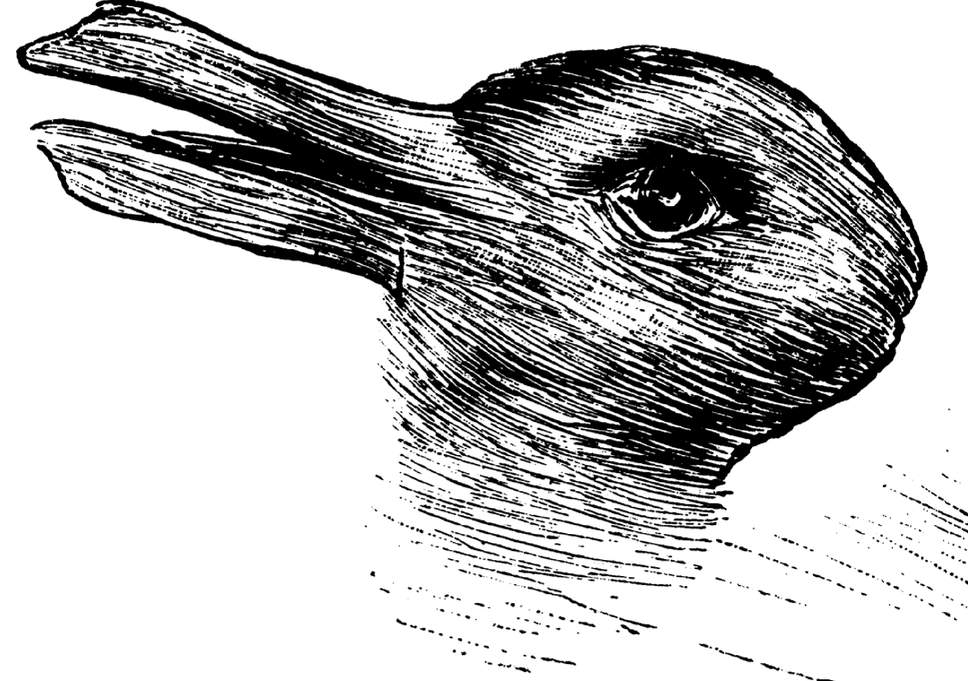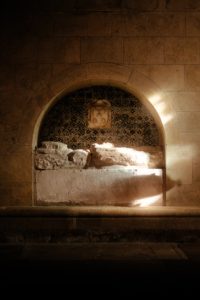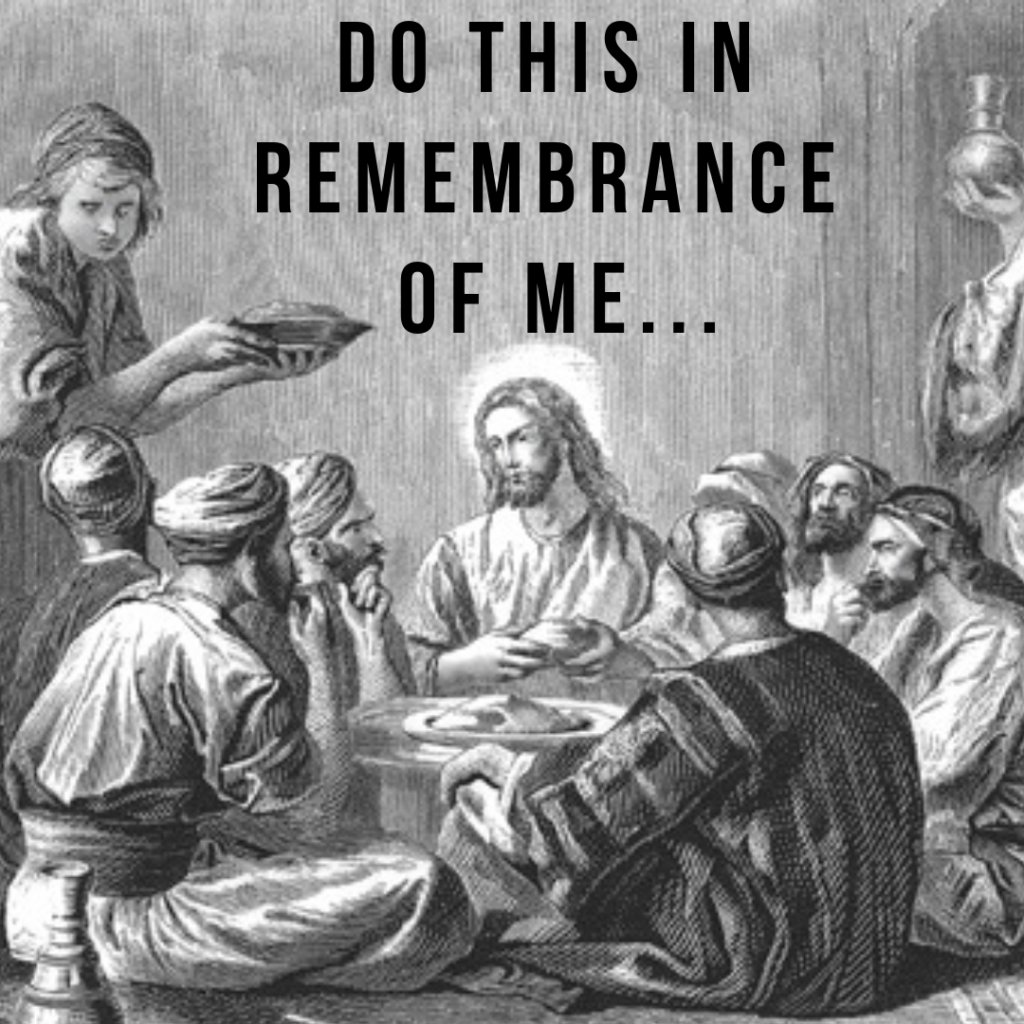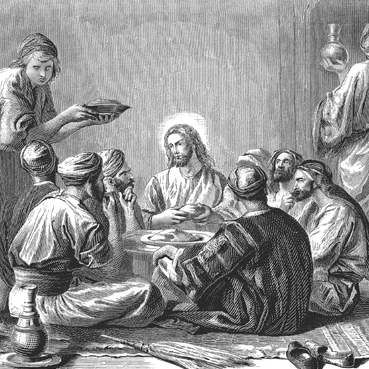What Do You See?
What we expect to see is often what we end up seeing. Expectations are everything. And changing them is hard.
The same is true for Communion, or the Lord’s Supper, or the Eucharist (depending on your tradition).
Paul tells not to eat or drink of the Lord’s Supper “without discerning the body” for otherwise we will bring judgment on ourselves, even death (1 Cor. 11:29-30). Paul tells us not to eat or drink of the cup in an “unworthy manner.” We must examine ourselves as we come to the Table, otherwise we will be “answerable for the body and blood of the Lord” (vv. 27-28).
Why such harsh words? What is going on here?
It’s Not About Seeing With Faith
Sometimes we are tempted to focus on the bread and cup as the object of what we need to “discern.” Is it just bread, or is it really the body of Christ? Is it just juice/wine, or is it really the blood of Christ?

Like this famous duck/rabbit picture, sometimes we feel like we are looking at the same picture but seeing two different things. Either this is a duck looking to the left with her bill slightly turned up. Or it is a rabbit looking to the right with her ears slightly turned up.
When it comes to the Lord’s Table we sometimes thing that if just have faith—if we just “discern” the body and blood correctly, then it will change from a duck to a rabbit.
But this is not what Paul is talking about. Certainly we need faith to press into the mystery of what it means that Jesus said about bread and wine that they ARE his body and blood (is it a metaphor, a symbol, a reality?).
But this is not what Paul is getting at.
It’s Not About of the Past
Sometimes we link “discerning” the body and blood with the Jesus’ command that we do these thing “in remembrance of me” (vv. 24-25). And when we properly remember Jesus’ death then “proclaim the Lord’s death until he comes” (v. 26).

As the thinking goes, we must examine ourselves to make sure we are thinking of Jesus’ terrible death for our sake, for our sin. And when we remember our sin, when we remember his death, when we remember his great sacrifice, then we are properly discerning the body and blood of Jesus.
Of course, remembering all of those things won’t do you harm. And if fact they will probably do you some good.
But, again, this is not Paul’s primary concern.
It’s Not About the Bread and the Cup
Truth is, Paul’s not concerned with what we are thinking and feeling about the bread and the cup, the body and the blood.
Paul is not concerned with what is going on inside of us, or whether we are stretching out to connect with God spiritual.
Paul is not focused on whether or not we are communing with God.
He’s focused on whether or not we are communion with each other!
Discerning the Church (Body) Amid Division
The Truth is, the entire section on the Lord’s Table in 1 Corinthians 11:17-34 is about divisions in the church. The church body (the social body of Christ) was divided in Corinth. And this division was expressed in how they practiced the Lord’s Table. And this division around the Table is what they needed to “discern” and “examine” themselves about.
The rich were showing up early and having a good time, maybe getting a little tipsy. And the poor were showing up late and eat their meager meal separately. The Corinthians’ practice of the Lord’s Table was exposed the rank economic division among them.
But Jesus’ table fellowship was always with the sinners, outcasts, and otherwise unwelcome by the religious authorities. Jesus was constantly breaking down social barriers and bringing the excluded into community. Or better, that enter into communion.
What the Corinthians were missing, what they needed to discern better, and what they needed to examine, is how their social body was lying about what Jesus’ life and death and resurrection really means. They were lying about the GOSPEL.

We must shift from our Western individualism when it comes to the Lord’s Table. We must stop focusing on what we are thinking and feeling and remembering about God, and focus on what we are thinking and feeling and acting like toward others.
We must stop looking at the bread and the cup and wonder how they are being transformed into something else, and instead focus on how we are being transformed into one who can imitate Jesus’ own kind of fellowship.
As you come to the table this next Sunday, discern whether or not you are building up the body of Christ all around, or whether you are tearing it down.

